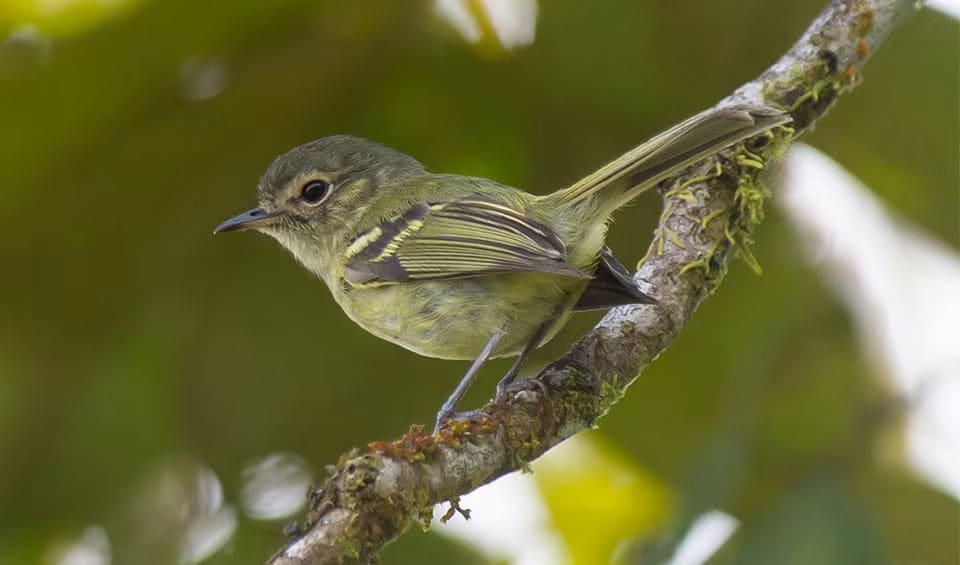A captivating small passerine bird that holds the distinction of being endemic to the Atlantic Forest of eastern Brazil. Its vibrant yellow throat and belly serve as eye-catching features, contrasting beautifully with its dark gray head and upper body. Additionally, the bird’s wings and tail exhibit a subtle blend of black and gray hues, further adding to its overall charm and appeal.
Despite its diminutive size, the Bahia tyrannulet possesses a remarkably powerful voice, capable of producing a melodious song that resonates throughout the dense foliage of the Atlantic Forest. This enchanting song serves multiple purposes, including territorial defense, mate attraction, and communication with other members of its species. Birdwatchers and wildlife enthusiasts often find themselves drawn to the forest’s depths by the lure of this bird’s captivating vocalizations.
In terms of its ecological role, the Bahia tyrannulet primarily occupies the understory and midstory layers of the Atlantic Forest, where it forages for a diverse array of food items. Its diet consists mainly of insects, spiders, and small fruits, which it captures with remarkable agility and precision. By preying on insects, the Bahia tyrannulet helps regulate insect populations, playing a crucial role in maintaining the balance of the forest ecosystem.
Like many species endemic to the Atlantic Forest, the Bahia tyrannulet faces numerous threats to its survival, including habitat loss, fragmentation, and degradation due to deforestation, agricultural expansion, and urbanization. Conservation efforts aimed at protecting and restoring the Atlantic Forest are therefore essential for safeguarding the future of this unique bird species and the myriad of other plant and animal species that call this biodiversity hotspot home.
Distribution
 Brazil
Brazil Official estimate
Official estimate
Anything we've missed?
Help us improve this page by suggesting edits. Glory never dies!
Suggest an editGet to know me
Terrestrial / Aquatic
Altricial / Precocial
Polygamous / Monogamous
Dimorphic / Monomorphic (size)
Active: Diurnal / Nocturnal
Social behavior: Solitary / Pack / Herd / Flock
Diet: Carnivore / Herbivore / Omnivore / Piscivorous / Insectivore
Migratory: Yes / No
Domesticated: Yes / No
Dangerous: Yes / No




